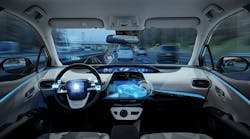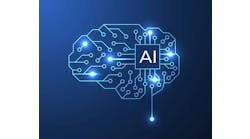The concept of industrial autonomy as the next evolutionary step beyond mere automation for the process industries continues to gather momentum among leading suppliers of process automation platforms, as Honeywell’s new “journey to autonomous” vision (see news story, p. 18) joins Yokogawa’s Industrial Automation to Industrial Autonomy (IA2IA) roadmap for the future.
But there’s been considerable discussion the past couple of years about how the autonomous vehicle concepts we’ve all become familiar with in the context of self-driving cars translate to the operation of a process plant. For instance, how do we even classify the transitions from automated to "intelligently" automated (augmented with artificial intelligence and machine learning) and ultimately to autonomous operations?
Many cars already are quite intelligent, for example, and have subsystems like automatic brakes that respond independently to unexpected but narrowly defined conditions.
Indeed, the automotive industry has been adding intelligent systems that allow, for example, automated parallel parking, lane alerts, reactive cruise control and supervised, semi-autonomous highway driving. Meanwhile, the fully driverless car has been slower to arrive than many anticipated simply because of the far broader array of information about its surroundings that the fully driverless car must sense, understand and respond to without fail.
And if one considers the even greater diversity of operational tasks that a refinery or larger chemical plant entails—from the control room to the field to planning and scheduling—then fully autonomous plant operations are even further into the future. We will, however, continue to take strides in that direction, realizing smarter and more semi-autonomous subsystems that allow human operators to focus on higher level tasks, even while operating more safely, reliably and efficiently.
In unveiling Honeywell’s industrial autonomous vision, Jason Urso, chief technology officer, argued that while increased autonomy is directionally correct, the primary goal isn’t eliminating human operators. Rather, it’s deploying technology that allows those humans to make better decisions.
Referencing autonomous cars, he noted that the main benefit isn’t getting by without a driver. Rather, it’s the safer, more predictable and efficient operation of cars that promises to save the lives of the 100 people who die every day in motor vehicle accidents in the U.S. Further, driverless cars could substantially reduce the country’s $100 billion annual bill for medical care and productivity losses due to motor vehicle crashes.
So, just as autonomous cars can help society reduce these liabilities, autonomy can similarly transform industry. “Sure, some operations will require fewer people,” Urso said. “But the real focus of industrial autonomous is on enhancing the senses of the people making decisions.”
“We’re leveraging technology to allow the system to take the optimal path, making room for human operators to perform higher-order tasks,” added Peter Davis, senior director of engineering, systems and HMI, Honeywell. To start with, an “elimination of the manual” would tackle poorly tuned process models, for example, and allow automation to move the process closer to optimal even with changing conditions.
So if the main benefit of moving toward autonomous cars is to save lives and healthcare costs, what's the main benefit of a journey toward industrial autonomy? In addition to tackling the new grid complexities presented by renewable energy sources and storage systems, autonomy's legacy might well be lowering emissions of greenhouse gases from the sector most responsible for them. Industrial autonomy may still be a ways off, but if we head in that direction, the smarter systems we develop and deploy will contribute their own benefits along the way.






